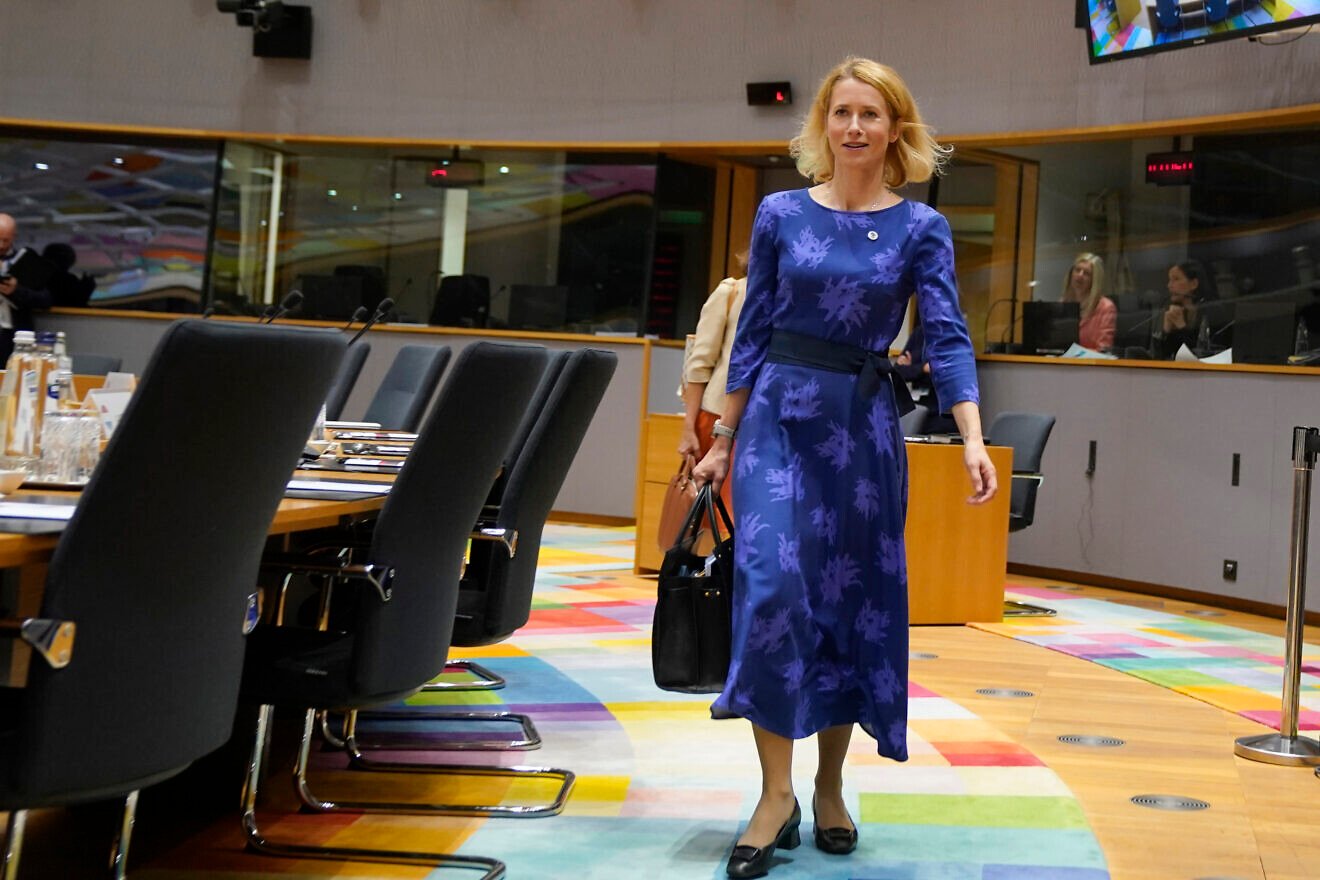by Yossi Lempkowicz
While the Israel-Hamas ceasefire has "changed the context," the sanctions threat will not be rescinded until there is "real and sustained change on the ground," said the EU's foreign affairs chief.

Although a fragile ceasefire has been in place in Gaza since Oct. 10, European Union foreign ministers on Monday decided to maintain the threat of sanctions against Israel, originally adopted by the European Commission in September.
After a meeting of the ministers in Luxembourg, E.U. foreign affairs chief Kaja Kallas acknowledged that the ceasefire “has changed the context, that is very clear for everybody.” She added, however, that “unless we see real and sustained change on the ground, including more aid reaching Gaza, the threat of sanctions remains on the table.” She mentioned that during the meeting “there were divergent views” on the issue.
“We do not move with the measures now but we do not take them off the table either, because the situation is fragile,” Kallas told reporters.
She added, “We need to see the improvement of humanitarian aid reaching Gaza. We need to see also Palestinian revenues to be given to Palestine—or released by the Israeli authorities. We need to see journalists and humanitarian aid workers getting in. We need to see also the international NGOs’ registration be unrestricted. These were the worries that Member States raised.”
During her State of the E.U. address in the European Parliament in September, European Commission President Ursula von der Leyen announced a proposal to partially suspend the trade part of the E.U.–Israel Association Agreement and to sanction two ministers in Prime Minister Benjamin Netanyahu’s government, Itamar Ben-Gvir and Bezalel Smotrich, as well as “violent settlers.”
Earlier this year, the Commission suspended E.U. funding supporting cooperation with Israel, totaling around €14 million, and proposed freezing participation in parts of the Horizon Europe research program—a measure that was never adopted due to opposition from several E.U. member states.
The E.U.’s proposed sanctions came in response to what Brussels described as the catastrophic humanitarian situation in Gaza and following Israel’s decision to expand its military operations in Gaza City.
Kallas noted that the European Union is the largest financial backer of the Palestinian Authority and Gaza’s biggest humanitarian donor. “Our border assistance mission (in the Rafah crossing) stands ready to deploy. Ministers discussed how the European Union can put its full weight behind the peace plan, including by providing additional governance and reconstruction support.”
The Israeli army said it will resume enforcement of the ceasefire in Gaza after carrying out airstrikes on Sunday in response to Hamas’s “blatant violation” of the deal. The IDF reported that terrorists fired an anti-tank missile and gunfire at its troops in Rafah, killing two soldiers.
Originally published by the European Jewish Press.
Yossi Lempkowicz
Source: https://www.jns.org/despite-ceasefire-eus-proposed-israel-sanctions-not-off-the-table/
No comments:
Post a Comment